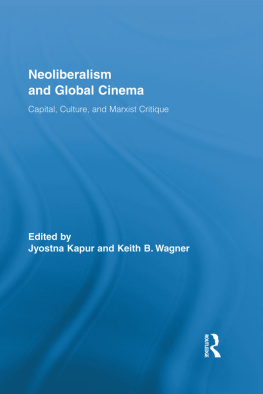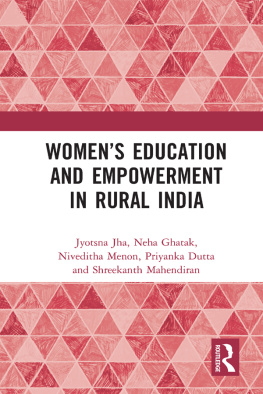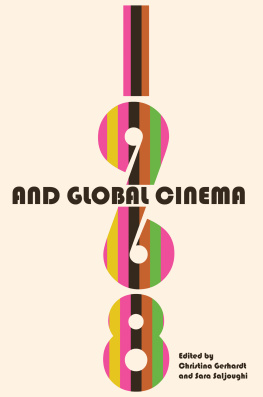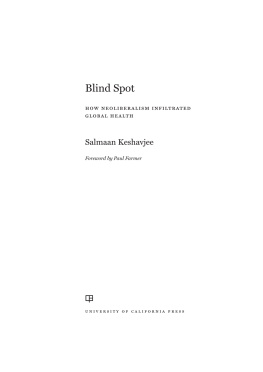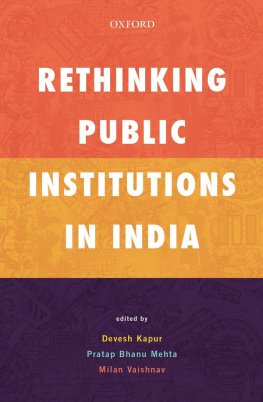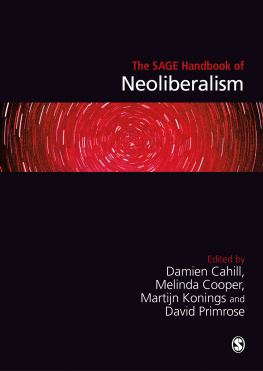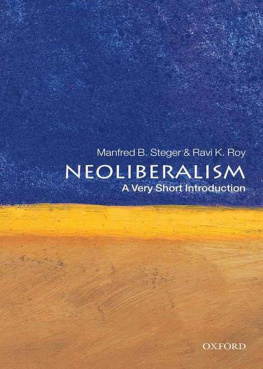Kapur Jyotsna - Neoliberalism and Global Cinema
Here you can read online Kapur Jyotsna - Neoliberalism and Global Cinema full text of the book (entire story) in english for free. Download pdf and epub, get meaning, cover and reviews about this ebook. publisher: Taylor & Francis Group, genre: Politics. Description of the work, (preface) as well as reviews are available. Best literature library LitArk.com created for fans of good reading and offers a wide selection of genres:
Romance novel
Science fiction
Adventure
Detective
Science
History
Home and family
Prose
Art
Politics
Computer
Non-fiction
Religion
Business
Children
Humor
Choose a favorite category and find really read worthwhile books. Enjoy immersion in the world of imagination, feel the emotions of the characters or learn something new for yourself, make an fascinating discovery.
- Book:Neoliberalism and Global Cinema
- Author:
- Publisher:Taylor & Francis Group
- Genre:
- Rating:5 / 5
- Favourites:Add to favourites
- Your mark:
- 100
- 1
- 2
- 3
- 4
- 5
Neoliberalism and Global Cinema: summary, description and annotation
We offer to read an annotation, description, summary or preface (depends on what the author of the book "Neoliberalism and Global Cinema" wrote himself). If you haven't found the necessary information about the book — write in the comments, we will try to find it.
Neoliberalism and Global Cinema — read online for free the complete book (whole text) full work
Below is the text of the book, divided by pages. System saving the place of the last page read, allows you to conveniently read the book "Neoliberalism and Global Cinema" online for free, without having to search again every time where you left off. Put a bookmark, and you can go to the page where you finished reading at any time.
Font size:
Interval:
Bookmark:
Neoliberalism and Global Cinema
Routledge Advances in Film Studies
1. Nation and Identity in the New German Cinema
Homeless at Home
Inga Scharf
2. Lesbianism, Cinema, Space
The Sexual Life of Apartments
Lee Wallace
3. Post-War Italian Cinema
American Intervention, Vatican Interests
Daniela Treveri Gennari
4. Latsploitation, Exploitation Cinemas, and Latin America
Edited by Victoria Rutalo and Dolores Tierney
5. Cinematic Emotion in Horror Films and Thrillers The Aesthetic Paradox of Pleasurable Fear
Julian Hanich
6. Cinema, Memory, Modernity
The Representation of Memory from the Art Film to Transnational Cinema
Russell J.A. Kilbourn
7. Distributing Silent Film Serials
Local Practices, Changing Forms, Cultural Transformation
Rudmer Canjels
8. The Politics of Loss and Trauma in Contemporary Israeli Cinema
Raz Yosef
9. Neoliberalism and Global Cinema
Capital, Culture, and Marxist Critique
Edited by Jyotsna Kapur and Keith B. Wagner
Neoliberalism and Global Cinema
Capital, Culture, and Marxist Critique
Edited by
Jyotsna Kapur and Keith B. Wagner

First published 2011
by Routledge
711 Third Avenue, New York, NY 10017
Simultaneously published in the UK
by Routledge
2 Park Square, Milton Park, Abingdon, Oxon OX14 4RN
Routledge is an imprint of the Taylor & Francis Group, an informa business
2011 Taylor & Francis
The right of Jyostna Kapur and Keith B. Wagner to be identified as the authors of the editorial material, and of the authors for their individual chapters, has been asserted in accordance with sections 77 and 78 of the Copyright, Designs and Patents Act 1988
All rights reserved. No part of this book may be reprinted or reproduced or utilised in any form or by any electronic, mechanical, or other means, now known or hereafter invented, including photocopying and recording, or in any information storage or retrieval system, without permission in writing from the publishers.
Trademark Notice: Product or corporate names may be trademarks or registered trademarks, and are used only for identification and explanation without intent to infringe.
Library of Congress Cataloging-in-Publication Data
Neoliberalism and global cinema : capital, culture, and Marxist critique / edited by Jyotsna Kapur and Keith B. Wagner.
p. cm. (Routledge advances in film studies ; 9)
Includes bibliographical references and index.
1. Motion picturesPolitical aspects. 2. Motion picturesSocial aspects. 3. Motion picturesEconomic aspects. 4. Motion pictures and globalization. 5. Culture in motion pictures. I. Kapur, Jyotsna. II. Wagner, Keith B., 1978PN1995.9.P6N48 2011
791.43'6581dc22
2010051415
ISBN13: 978-0-415-88905-6 (hbk)
ISBN13: 978-0-203-81363-8 (ebk)
For:
My teachers, Chuck Kleinhans and Randhir Singh
Jyotsna Kapur
Katy Chieh Yin Lee and my family
Keith B. Wagner
Figures
Acknowledgments
Both editors have several people to thank for making this project possible.
For Jyotsna, they include: Walter Metz, Department Chair, Cinema and Photography, Southern Illinois University, Carbondale; Yoon Dol Youm for research assistance; Satish Bhatia, Fr. Lawrie Ferraro, Fr. Myron Periera, and Naren Panjwani, all colleagues at the Xaviers Institute of Communications, Mumbai, for hosting me for a semester; a Fulbright Fellowship that made it possible to be in India for a year; my family here and in IndiaNilim, Suhaila, Mike, Narinder, Satinder, Depinder, Ajinder, Ankur, Inderjeet, Satnam, Sumi, and Sanjamfor giving me the time to write; and Keith Wagner for initiating this project and then persisting that we get it done.
And Keith would like to thank: Jyotsna Kapur for agreeing to take on this project and for her incisive and enthusiastic collaboration; at the University of Rhode Island I am grateful to John Leo for his mentoring and generous intellectual support; equally, Dudley Andrew at Yale University for his compelling lectures on world cinema that turned me on to the field as an undergraduate and someone who still inspires me; at the University of Cambridge I am grateful to David Trotter, Susan Daruvala, and Lindiwe Dovey (now at SOAS) for allowing me to cultivate some of my ideas about neoliberalism while I was a former masters student; and, currently, Alex Callinicos who I would like to especially thank for challenging me to reconceptualize several of my arguments regarding the political economy of neoliberalism here in this book; in another capacity, Mark Betz for his critical support and encouragement of all things film related; I would also like to express gratitude to several colleagues, who in early stages of their careers have listened patiently to me on a number of occasionsJustin Orenstein, Kimberly McGee, Ying Xiao, Luke Vulpiani, and Eli Park Sorensen. And last but not least, my family back in ConnecticutDad, Mom, Grandma, Scott, Matt (via Prague), and Chris (via Brooklyn)for their tremendous belief in me.
Of course, this book would not have been possible without the serious engagement of the authors in this volume who gave generously of their time and labor in finalizing their contributions. Finally, we would like to thank Michael Watters at Integrated Book Technology and Erica Wetter and Diana Castaldini at Routledge for their steadfast effort and wonderful enthusiasm in seeing this project to completion.
Introduction
Neoliberalism and Global Cinema: Subjectivities, Publics, and New Forms of Resistance
Jyotsna Kapur and Keith B. Wagner
In the wake of the credit crisis and the subsequent Wall Street bailout in 2008, when we started to plan this book, we were sometimes asked why we would embark on such an outmoded project. After all, even the most avid advocates of neoliberalism, such as Alan Greenspan, had acknowledged that mistakes had been made and that the seeds of the current crisis lay in the unprecedented deregulation of the last two and a half decades. In the desire for novelty that dominates the academic marketplace and the postmodern disdain for meta-narratives that still persists, it should be no surprise that Marxism or the critical analysis of capitalism would once again be declared fashionably out-of-date. Yet, if there is a moment when Marxism may be rigorously applied to understanding and seeing alternatives to our world, there could be no better time than ours. As neoliberalism has emerged as the hegemonic world order, the contradictions of capitalits tendency to disintegrate the world while it radically integrates ithave erupted globally in social tensions, peoples protests, and widening chasms. New technologies of communications have served as the glue and conduit of neoliberalism whereas the production of culture is, after war, the second most important sector in the neoliberal economy. Consequently, Marxist critique, whose prime subject has been capitalism and its human consequences, when applied to global cinema can offer key insights into the nature and contradictions of the neoliberal project. In other words, global cinema can, in the hands of Marxist criticism, become a lens into the political economy of neoliberalism and its far-reaching implications on culture. It brings cinema studies into the center of any inquiry into contemporary society while at the same time bringing the unique assets of cinema studies, its study of the economics, aesthetics, and politics of cinema culture, to bear upon such a study. This book hopes to help ground cinema studies in this much-needed inquiry into the neoliberal project and also in imagining its alternatives.
Next pageFont size:
Interval:
Bookmark:
Similar books «Neoliberalism and Global Cinema»
Look at similar books to Neoliberalism and Global Cinema. We have selected literature similar in name and meaning in the hope of providing readers with more options to find new, interesting, not yet read works.
Discussion, reviews of the book Neoliberalism and Global Cinema and just readers' own opinions. Leave your comments, write what you think about the work, its meaning or the main characters. Specify what exactly you liked and what you didn't like, and why you think so.

